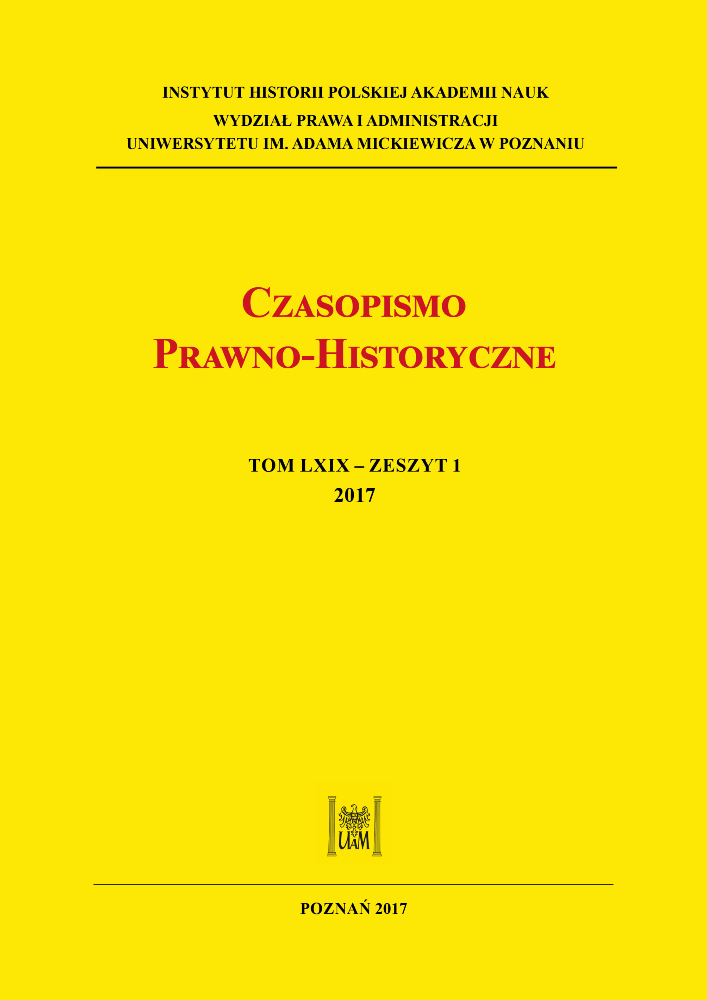Abstrakt
The article presents the rules of appeal proceedings in civil and criminal cases in the Napoleonic Free City of Danzig. The appeals took place before the Revision Commissions which were appointed for civil cases in October 1809 a nd for criminal cases in February 1810. Furthermore, the paper delineates their organizational structure as well as the method of making the final decision (rejecting or accepting the Commission’s decision). The contents of this article were based on the rules and regulations which governed the Commissions which hitherto were not used in research. Moreover, the judiciary and the appeals systems were described in the projects of the constitution of the Free City of Danzig (Danzig Senate from 1807, a project by the mayor of Danzig – Gottlieb Hufeland, as well as a project by the French resident Nicolas Massias). However, these plans were not introduced but they were substituted by the rules and regulations of the Revision Commissions. This serves as an illustration of the French influence on the law in Danzig in the Napoleonic era of the Free City. Also the appeal process in the Napoleonic Free City of Danzig was presented against the backdrop of the general history of appeals in the course of legal cases before the judiciary in Danzig. This facilitates the observation of the changes which took place in the course of legal cases throughout history. In particular, it helps in the observations made at the turn of the 18th century as it was the period when the law transformed from Feudalism to Bourgeoisie.Licencja

Utwór dostępny jest na licencji Creative Commons Uznanie autorstwa – Użycie niekomercyjne – Bez utworów zależnych 4.0 Międzynarodowe.




